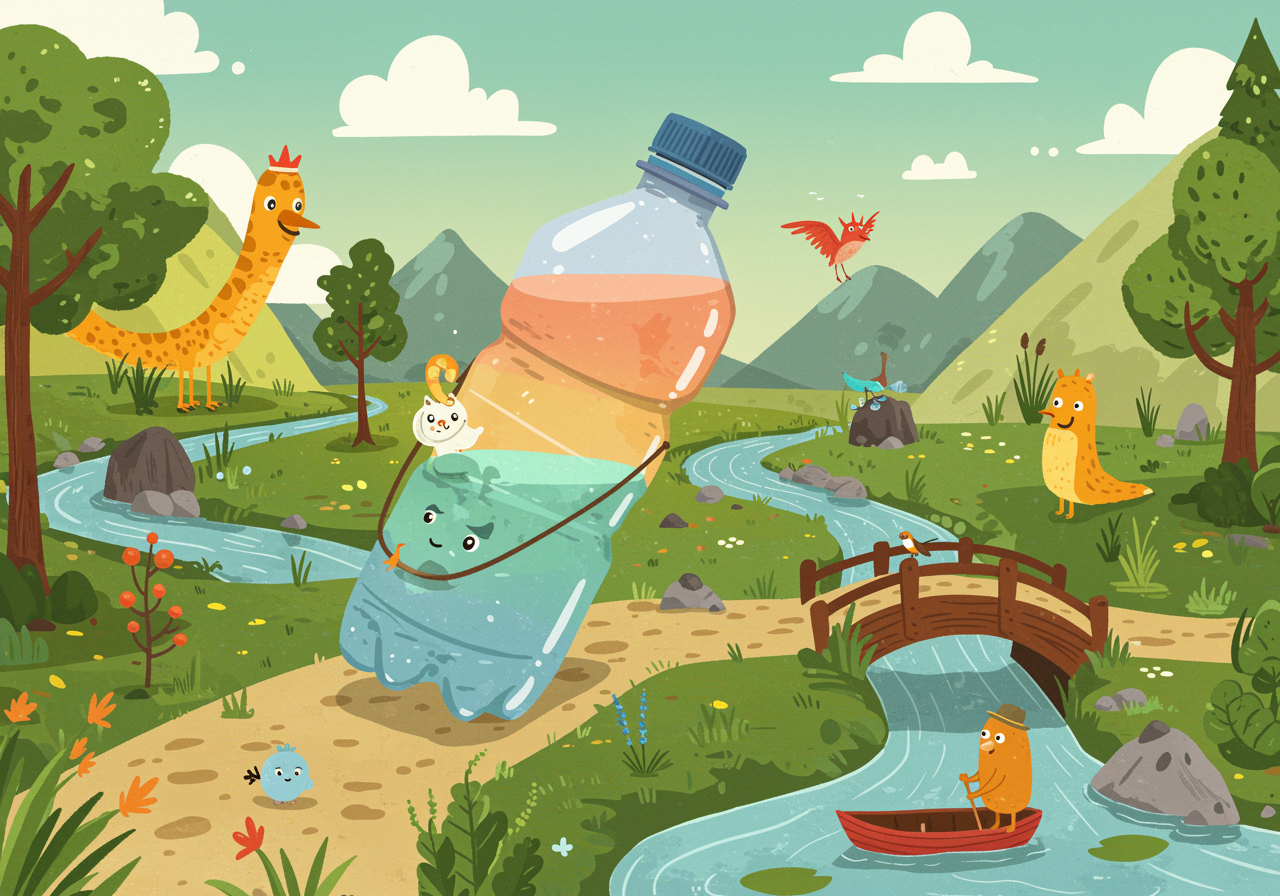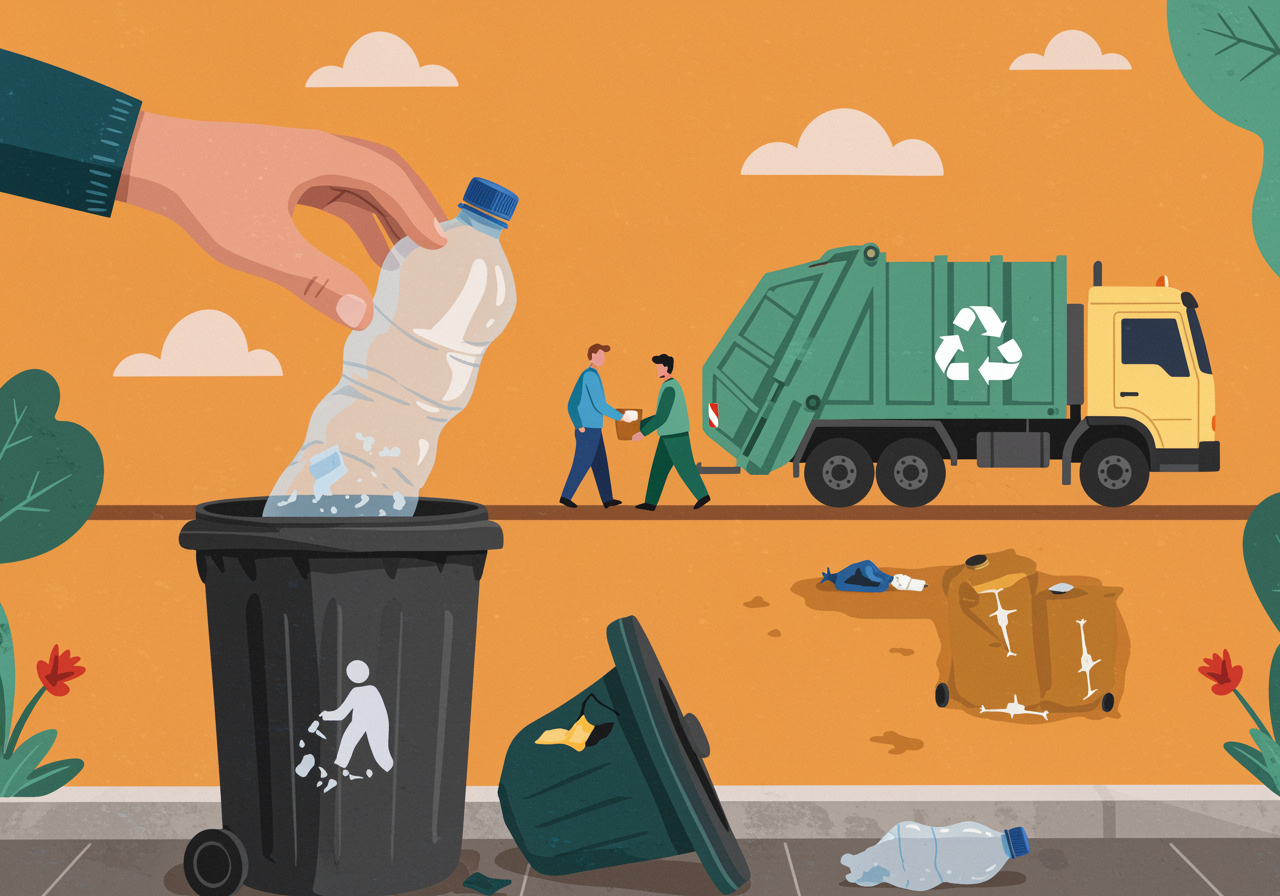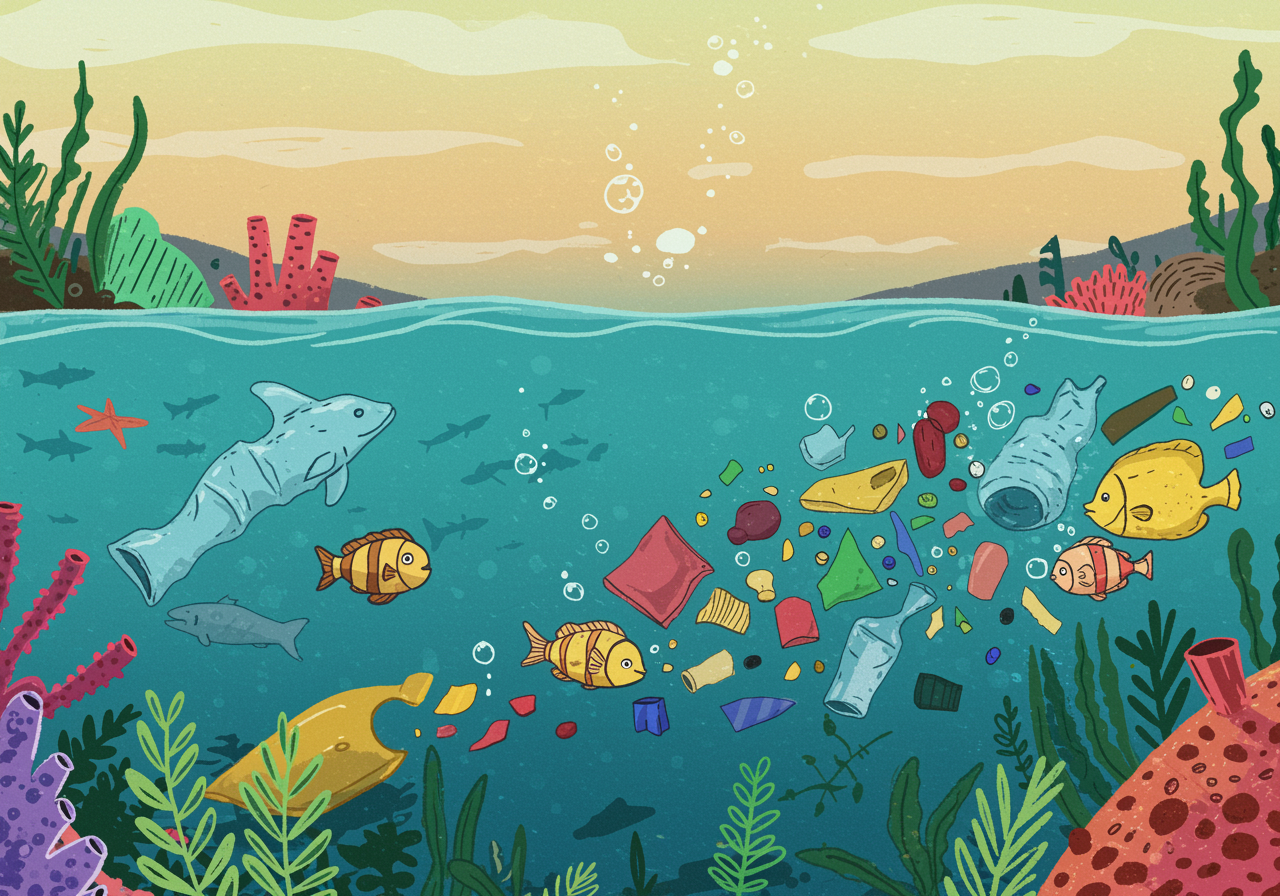The Great Plastic Adventure: Where Does It All Go?
Uncover the secret journey of your water bottle after you toss it in the trash
Join your family on an eye-opening adventure to discover what really happens to plastic when it doesn’t make it to the recycling bin.
Overview
Every day, your family tosses plastic items without thinking twice about where they end up. But here's the wild part – that plastic bottle from lunch could outlive your great-great-grandchildren! Understanding what happens to our plastic waste isn't just about being 'green' – it's about making smart choices that affect our planet's future. This conversation helps families discover the fascinating (and sometimes surprising) journey of plastic waste while exploring simple ways to make a real difference.

Understand in 30 Seconds
Get up to speed quickly
- The Long Game: A plastic bottle takes 450+ years to break down completely – that's longer than the United States has existed!
- Ocean Travelers: Plastic that doesn't get recycled often ends up in our oceans, where it can travel thousands of miles and harm sea life.
- Landfill Mountains: Most non-recycled plastic sits in landfills, taking up space and potentially leaking chemicals into soil and water.
- Microplastic Mystery: Over time, plastic breaks into tiny pieces called microplastics that can end up in our food and water.
Real Life Scenario
Situations you can relate to
Imagine you're a detective following a plastic water bottle from your lunch table. First stop: the trash can, then a garbage truck that rumbles to a massive landfill. Picture this bottle sitting there for 450 years – through your kids, their kids, and many generations after! But what if our bottle took a different route and ended up in a storm drain? It could travel through rivers all the way to the ocean, where it might break into tiny pieces that fish mistake for food. Have you ever wondered how many plastic items you use in just one day? Try counting them tomorrow – you might be surprised!

Role Play
Spark a conversation with “what if” scenarios
What if you could talk to a plastic bottle that's been in a landfill for 50 years?
- Role play: Take turns being the bottle and an interviewer. The bottle shares its 'life story' and what it's seen change around it over the decades.
What if you were a sea turtle who keeps finding plastic in the ocean?
- Role play: Act out the turtle's daily challenges, discussing how plastic affects marine life and brainstorming solutions together.
What if you could shrink down and ride along with a piece of plastic on its journey?
- Role play: Create an adventure story together, following the plastic from your house through different possible destinations.
FAQs
Frequently asked questions people want to know
Why can't we just burn all the plastic waste?
Burning plastic releases toxic chemicals into the air that can harm people and animals. It's much safer to reduce, reuse, and recycle instead.
Is all plastic bad for the environment?
Not necessarily! Plastic has many useful purposes. The problem comes when we use it once and throw it away instead of recycling or reusing it.
How do microplastics get into our food?
Tiny plastic pieces in the ocean are eaten by fish, and plastic particles can also get into crops through contaminated water and soil.
Examples in the Wild
See how this works day to day
- The Great Pacific Garbage Patch is a floating island of plastic waste twice the size of Texas (National Geographic)
- Scientists found microplastics in 90% of table salt brands worldwide (Environmental Science & Technology journal)
- Americans throw away 2.5 million plastic bottles every hour (U.S. Environmental Protection Agency)
- A recent study found plastic particles in honey samples from six continents (Science Daily)
In Summary
What you should know before you start
- Plastic that isn't recycled can take hundreds of years to break down in landfills or oceans
- Microplastics from broken-down waste can end up in our food, water, and even the air we breathe
- Simple changes like using reusable water bottles and bags can make a big difference
- Understanding plastic's journey helps families make smarter choices about what they buy and throw away
Pro-tip for Parents
You got this!
If your teen seems overwhelmed by environmental problems, focus on empowerment rather than guilt. Start with one small change you can make together, like switching to a reusable water bottle, and celebrate that win. Kids this age want to feel like they can make a difference, so emphasize the positive impact of their choices rather than dwelling on the size of the problem.

Keep an Eye Out For
Find these examples in everyday life
- News stories about plastic cleanup efforts or new recycling technologies to discuss together
- Plastic items you use at home that could be replaced with reusable alternatives
- Local recycling programs or environmental initiatives your family could join
Explore Beyond
Look up these related research topics
- How different countries around the world handle plastic waste
- Cool innovations in biodegradable materials and plastic alternatives
- The science behind how recycling actually works and what happens at recycling plants